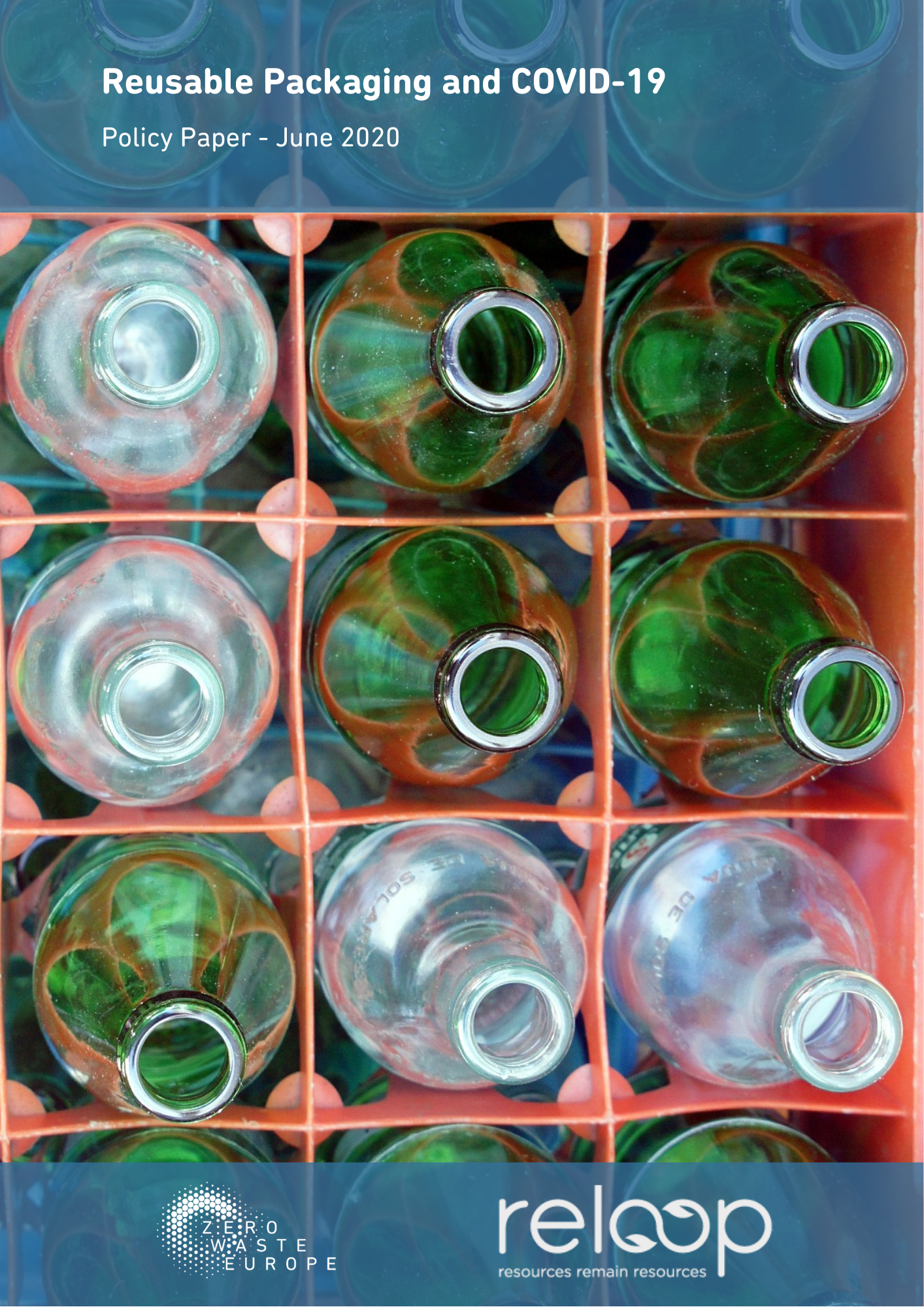
Zero Waste Europe and Reloop analyse the situation of reuse and refill systems in light of COVID-19. While industry pushes for single use, there is no evidence that single-use packaging contributes to the spread of the virus any less or more than reusables.
Available in English & Swedish
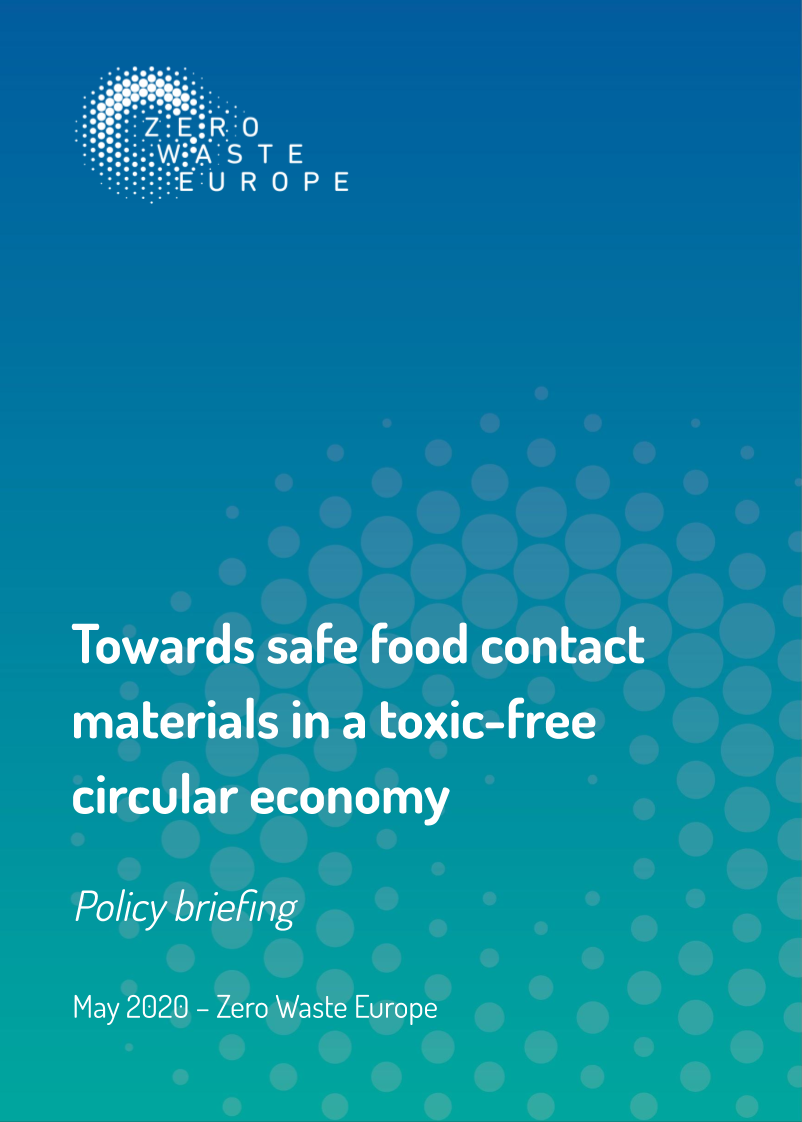
We have the opportunity to reform EU legislation on chemicals in food packaging to make it safe and reusable. Our latest policy briefing outlines recommendations to ensure a toxic-free circular economy.
Available in English
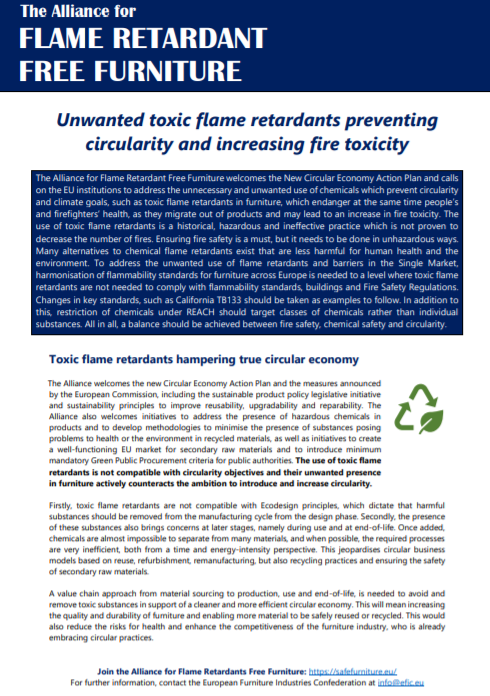
The Flame Retardant Free Furniture Alliance presents its latest position paper on unwanted toxic flame retardants preventing circularity and fire toxicity in light of the New Circular Economy Action Plan.
Available in English
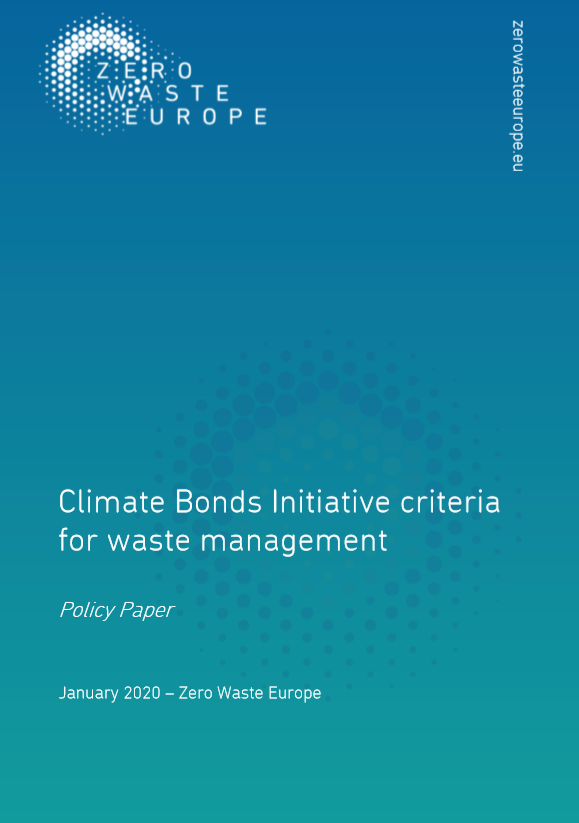
The Climate Bonds Initiative (CBI) claims to be the world’s preeminent authority on sustainable finance. Yet its recently published Waste Management Criteria endorses waste incineration outside the EU as a sustainable investment. This reveals an alarming double standard in its environmental and social principles and ignores the demands of more than a hundred civil society organisations that urged CBI to protect the circular economy and the climate from this technology. Read our policy paper.
Available in English.
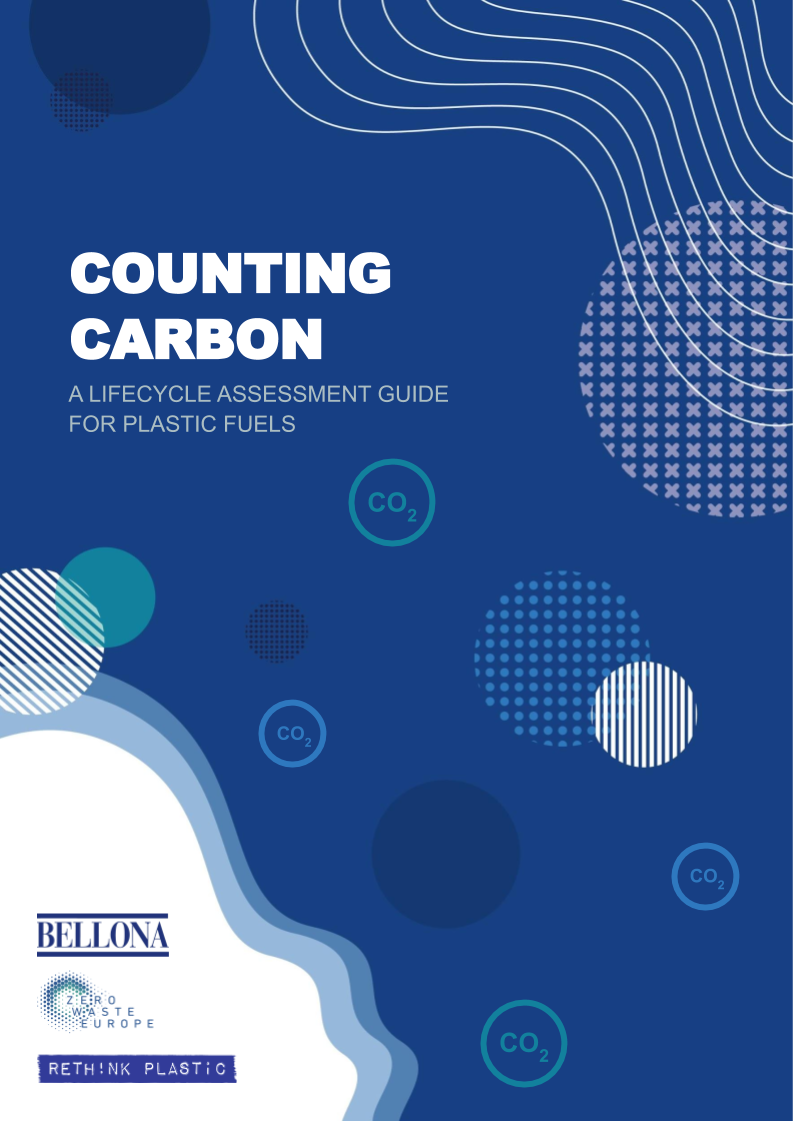
Converting fossil plastics to fuels is sometimes marketed as a part of the solution to the environmental and waste problems the plastic industry is currently facing. This briefing shows that when full cradle-to-grave lifecycle assessments are made, the fossil carbon embedded within plastics becomes much more apparent. Policy briefing with Rethink Plastic alliance and Bellona EU.
Available in English
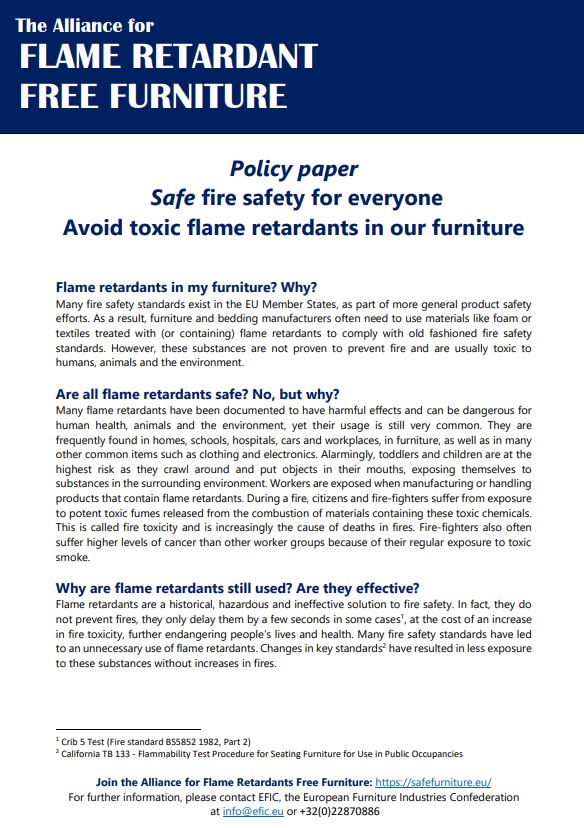
The Alliance for Flame Retardant Free Furniture released a position paper calling on EU-wide action against the use of flame retardants in furniture and bedding. The paper also points out the importance for the EU institutions to tap into the potential of toxic-free safe fire safety in support of a circular economy.
Available in English.
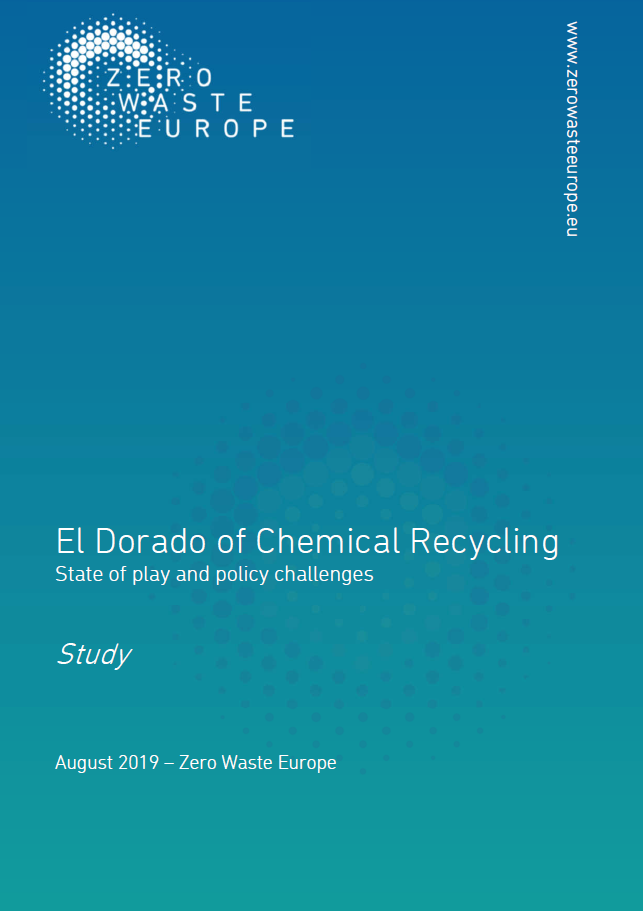
Zero Waste Europe releases a study on Chemical Recycling looking into the the state of implementation of the technologies in the European context and giving policy recommendations to ensure Chemical Recycling complements, rather than jeopardises, a real Circular Economy.
Available in English
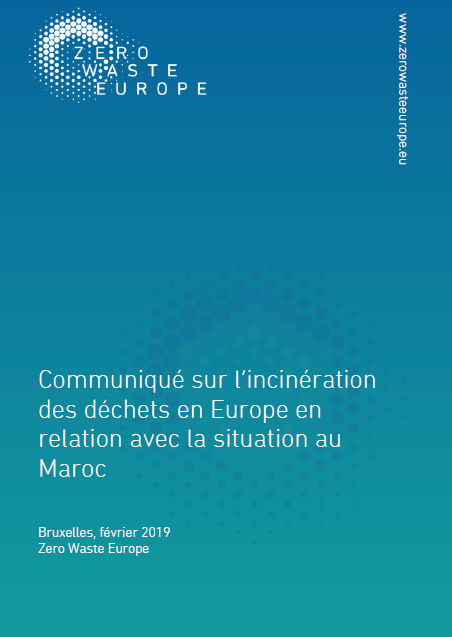
Le Maroc fait actuellement face à une crise des décharges liée notamment aux odeurs que celles-ci provoquent. Pour y remédier, le pays se penche vers des projets de construction d’incinérateurs. Zero Waste Europe invite le Maroc à s’inspirer des systèmes et technologies qui fonctionnent dans le cadre d’une économie circulaire.
Available in French.
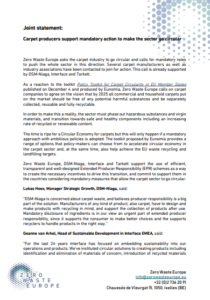
Carpet manufacturers, industry associations and civil society join voices to make the carpet industry go circular.
Available in English
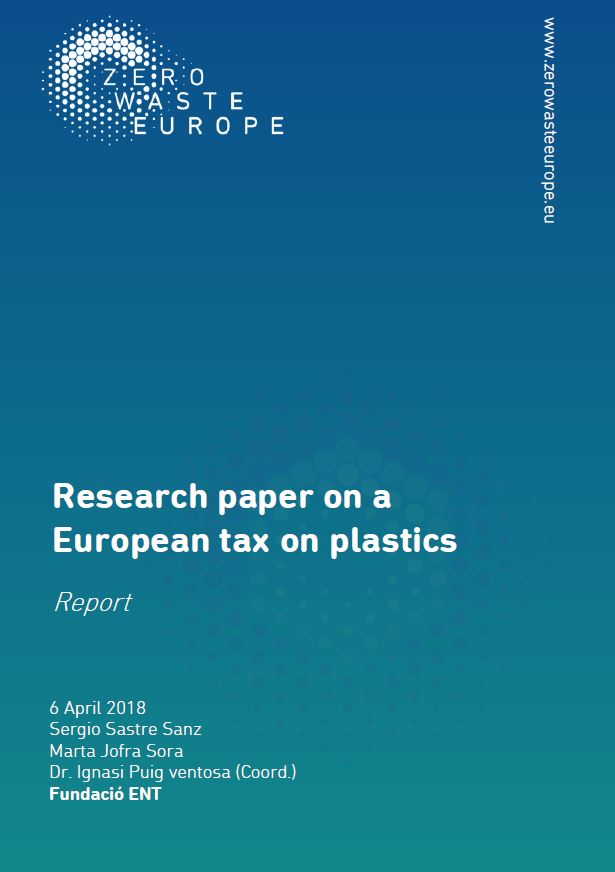
Environmental taxes are economic instruments aimed at affecting behaviour of industries, consumers, and resource managers through market systems. They can be combined with other market-based instruments such as subsidies, deposit-refund systems, resource pricing schemes or with other types of instruments, such as voluntary agreements or traditional command and control measures.
Download the full research paper to find out more.
Available in English
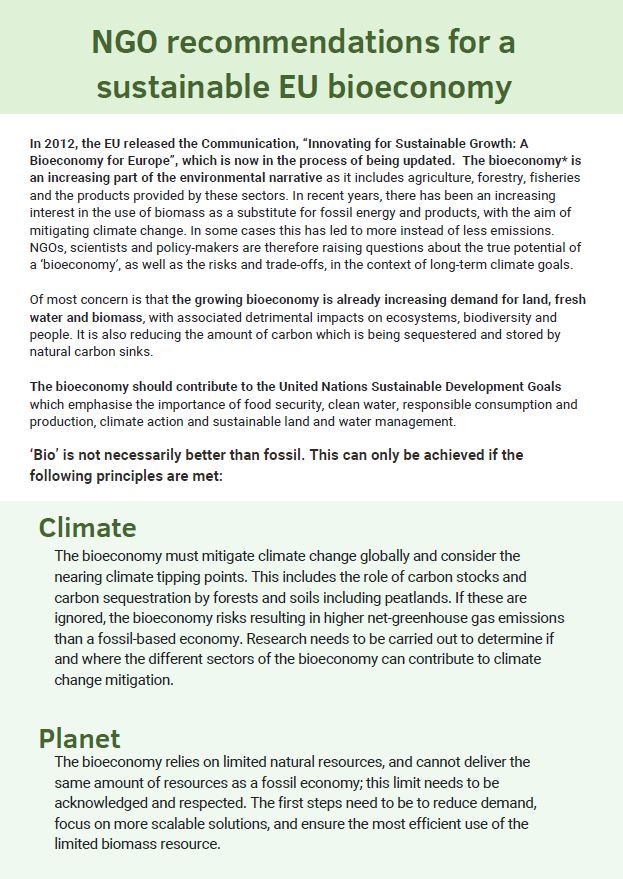
In 2012, the EU released the Communication, “Innovating for Sustainable Growth: A Bioeconomy for Europe”, which is now in the process of being updated. The bioeconomy is an increasing part of the environmental narrative as it includes agriculture, forestry, fisheries and the products provided by these sectors. NGOs, scientists and policy-makers are therefore raising questions about the true potential of a ‘bioeconomy’, as well as the risks and trade-offs, in the context of long-term climate goals.
Available in English
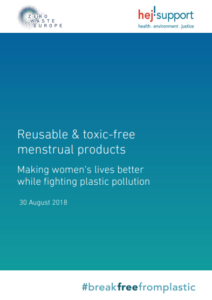
Beyond representing a major source of plastic pollution, disposable menstrual products come at a high cost for women, in terms of both budget and health hazard.
Zero Waste Europe calls on policy makers to ensure that women have access to toxic-free, reusable alternatives.
Available in English.
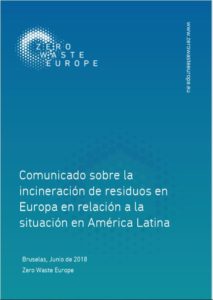
Zero waste good practices are cheaper, more flexible, less pollutant, more participatory, and generate more jobs than incineration. Read Zero Waste Europe statement on waste incineration in Europe and Latin America.
Available in: Spanish
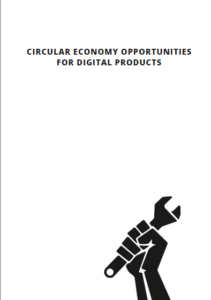
The joint policy paper by Zero Waste Europe, ECOS, EEB, IFIXIT and Rreuse complements Digital Europe’s publication “The Contribution of the Digital Industry in a Circular Economy” with additional perspectives, and challenge the digital industry’s conclusions with regard to policy options.
Available in English
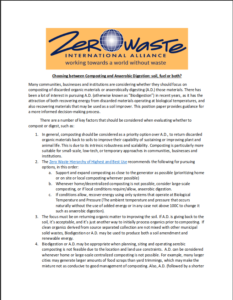
Zero Waste International Alliance’s (ZWIA) briefing on anaerobic digestion and composting.
Available in English
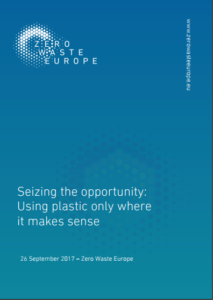
The policy paper looks at existing alternatives to fast-moving and short-lived plastic applications and calls for the EU to introduce reduction targets for single-use plastics within the EU Strategy on Plastics in the Circular Economy.
Available in English
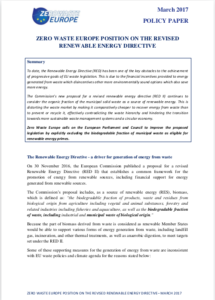
Zero Waste Europe’s March 2017 position paper on the revised Renewable Energy Directive. Highlighting key contradictions between RED II and Circular Economy policies.
Available in English
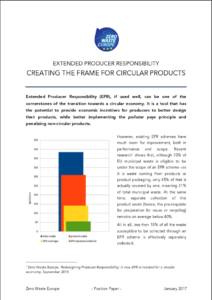
This position paper outlines that Extended Producer Responsibility (EPR), if used well, can be one of the cornerstones of the transition towards a circular economy. It is a tool that has the potential to provide economic incentives for producers to better design their products, while better implementing the polluter pays principle and penalizing non-circular products.

















